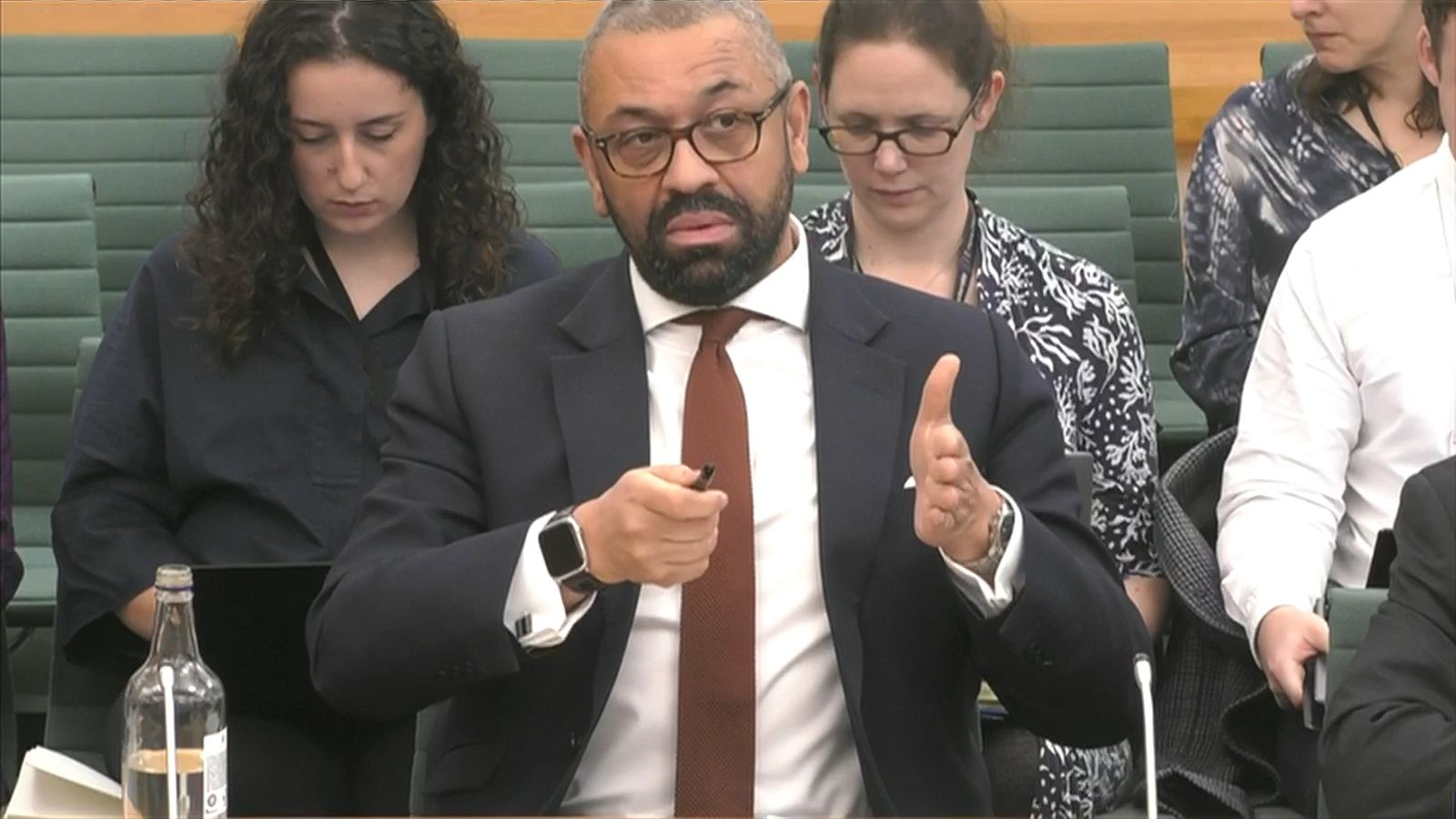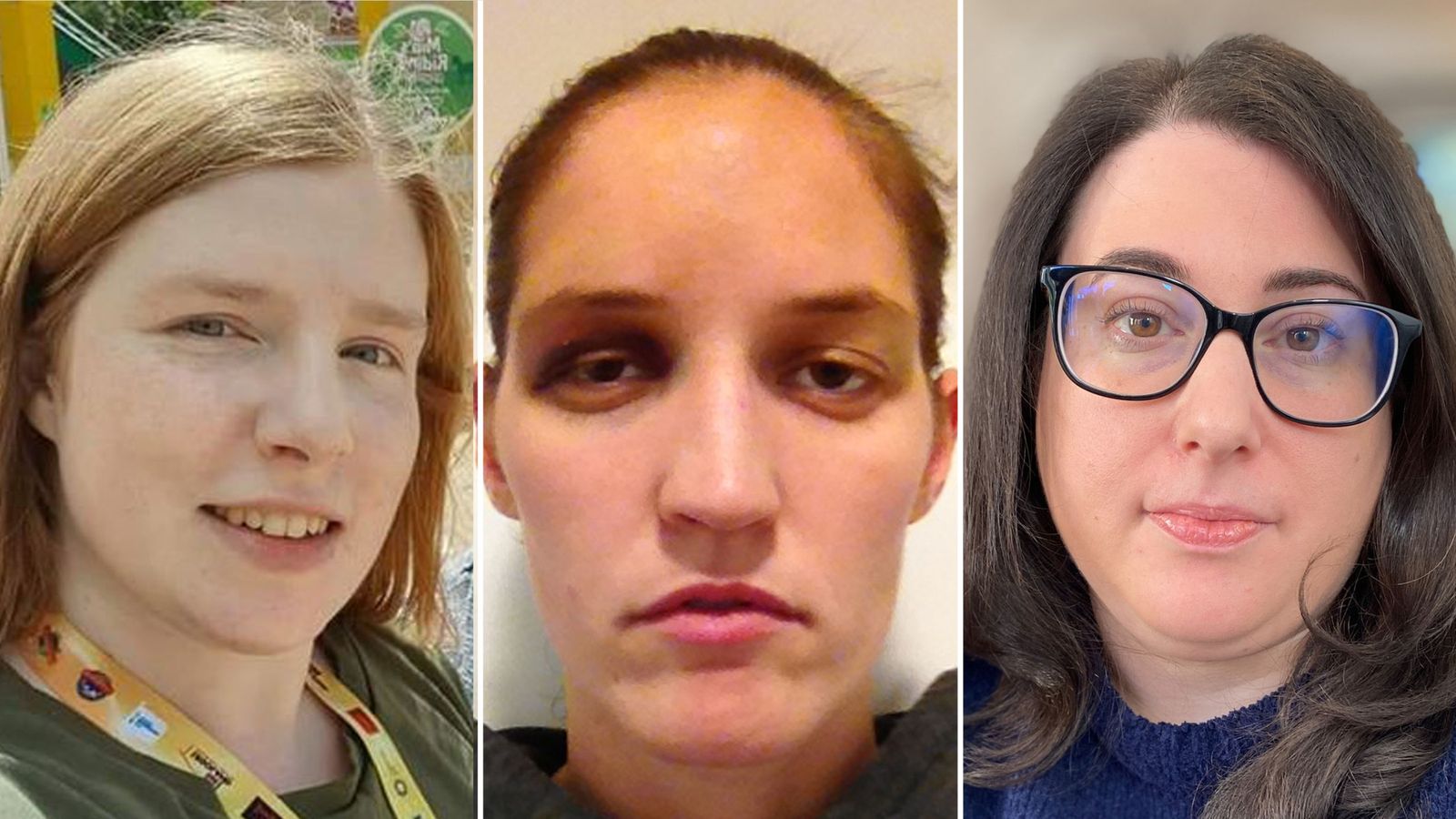The number of people who could be deported to Rwanda under Rishi Sunak’s £240m scheme “could be quite low”, the home secretary has admitted.
James Cleverly said while the scheme was “uncapped” with no upper limit, the number of people sent to the African nation would be “entirely dependent on other work we’re doing in parallel”.
In a session of parliament’s Home Affairs Select Committee, it was revealed 33,085 people had arrived in the UK since the Illegal Migration Act passed into law last year – despite the legislation seeking to make anyone who arrives in the UK ineligible to claim asylum.
Asked by committee chair Dame Diana Johnson how many of the 33,085 people who are eligible to go to Rwanda would be sent there, Mr Cleverly replied: “The answer is entirely dependent on other work we’re doing in parallel.
“It may well be if we’re successful with returns agreements, if circumstances in other countries change, it may well be that the figure is quite low.
Politics latest: ‘Seemingly impossible’ – deal to restore power-sharing ‘may get Brexit done’
“It could be nearly at that figure, but the point is the number of people that we might send to Rwanda is entirely contingent on a whole set of other work that we’re doing.”
The admission follows a series of high-stakes votes in the Commons regarding Mr Sunak’s Rwanda bill, which aims to declare the country is safe to deport asylum seekers to the country following the Supreme Court’s judgment to the contrary.
Earlier this month Mr Sunak’s controversial bill passed its final hurdle in the Commons by 320 votes to 276, despite the threat of a Tory revolt by those who do not think the bill goes far enough.
The bill is now in the House of Lords, where it faces significant opposition from peers including the Archbishop of Canterbury, who said the government was leading the country down a “damaging path”.
Please use Chrome browser for a more accessible video player
Although the Lords nodded through the bill’s second reading on Monday night, the legislation is likely to face further challenges at the committee stage, when amendments can be put forward by peers to change it.
The Rwanda plan, which was first announced by former home secretary Priti Patel, is a key part of Mr Sunak’s plan to slash illegal immigration.
The pressure the prime minister is facing from the right of his party to act intensified after the Office for National Statistics (ONS) projected that the UK population would grow to 70 million in two years.
Home Office officials who appeared alongside Mr Cleverly revealed the vast majority of the 33,085 people who have arrived in the UK since the Illegal Migration Act came into force are not detained and are free to roam while they go through the process of being deemed inadmissible for asylum.
Asked by Conservative MP Tim Loughton whether he was comfortable with so many people being “at large” and “missing”, Mr Cleverly rejected his description but said: “The point is that I am not comfortable with many of the numbers we discussed.
Please use Chrome browser for a more accessible video player
He went on to say that when people “disengage” from the process, officials at the Home Office “respond to that”.
Mr Cleverly was also asked about the 17,316 asylum applications that have been withdrawn or the whereabouts of the claimant is not known.
Of those people, the committee heard that 3,144 have left the UK, 2,643 have had some form of immigration status granted, with the remaining 5,598 unaccounted for.
Read more:
Justin Welby preaches to the converted in House of Lords
Four Rwandans granted refuge in UK over fears of persecution
Sir Matthew Rycroft, permanent secretary at the Home Office, said the department is “continuing to seek to trace them”.
Pushed on if he could provide a location for them, he replied: “Of the people who are in the country, they are not detained, so we cannot pinpoint a precise location.
“But for the vast majority, we have contact details, and we use those contact details to seek to re-establish contact with them.”
He added: “We have not yet succeeded in re-establishing active, direct contact with them. We are using all the different methods of tracing them to seek to trace them.”








